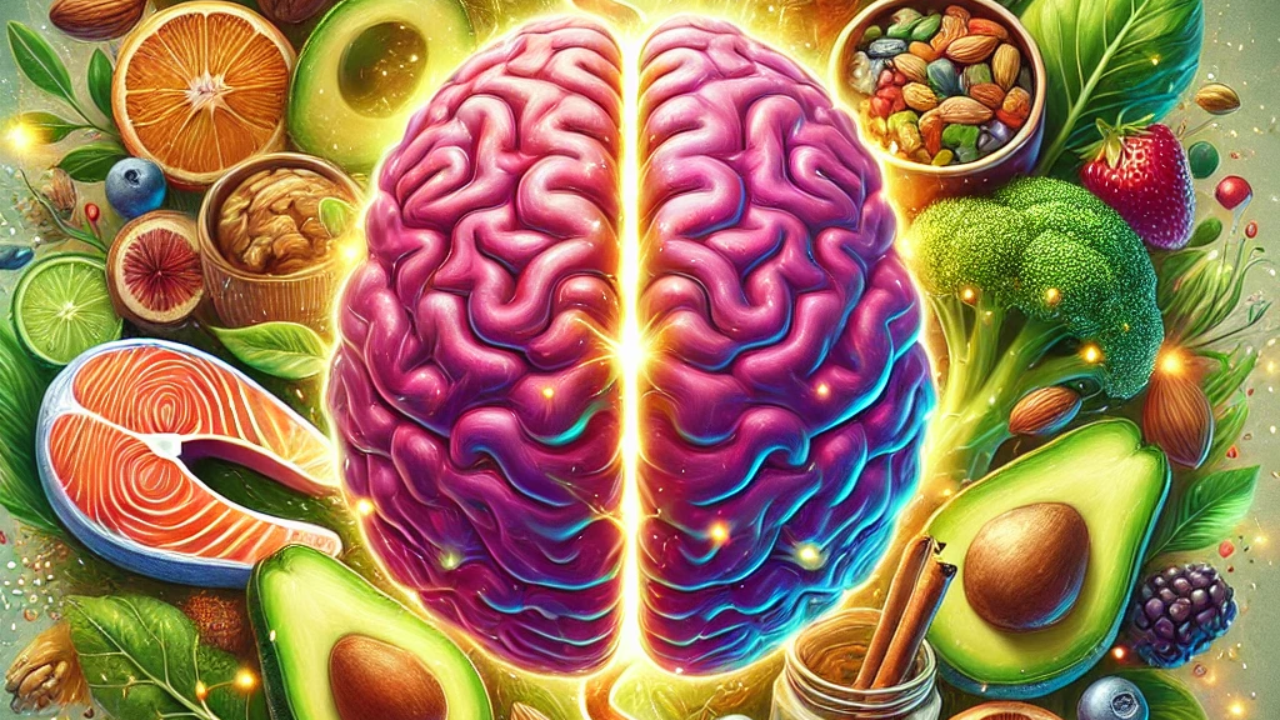Big Pharma Won’t Tell You This: How Nutrition Can Transform Your Mental Health & Recovery
Mar 10, 2025
Fuel Your Mind, Heal Your Body: The Power of Nutrition in Mental Health & Recovery
When it comes to mental health and substance abuse recovery, nutrition is often overlooked—yet it plays a critical role in emotional stability, cognitive function, and overall well-being. Our food choices directly influence neurotransmitter production, blood sugar balance, and gut health, all of which impact mood, energy levels, and resilience against stress.
If you or someone you love is navigating the path to mental wellness or overcoming substance dependency, understanding how to nourish the brain and body is essential. Let’s explore how food can either fuel recovery or hinder progress—and how small, intentional changes can transform mental well-being.
Why Nutrition Matters in Mental Health & Recovery
The gut and brain are deeply connected through what’s known as the gut-brain axis. Research shows that 90% of serotonin—the neurotransmitter responsible for happiness and emotional balance—is produced in the gut. A poor diet, substance abuse, and chronic stress can damage gut health, leading to mood disorders, brain fog, anxiety, and depression.
Additionally, many substances deplete essential vitamins and minerals that are crucial for mental function. Deficiencies in B vitamins, magnesium, zinc, omega-3s, and vitamin D can lead to increased cravings, mood instability, and low energy.
Common Nutritional Deficiencies in Mental Health & Recovery
Each substance affects nutrient levels differently. Here are some common deficiencies seen in mental health disorders and substance recovery:
-
Alcoholism: B vitamins (B1, B6, B12), magnesium, zinc.
-
Opioid Use: Calcium, vitamin D, magnesium.
-
Stimulants (Meth/Cocaine): Electrolyte imbalances, vitamin C, omega-3s.
-
Depression/Anxiety: Omega-3s, magnesium, vitamin D, iron, amino acids.
Without replenishing these nutrients, the brain struggles to regulate emotions, manage stress, and sustain energy levels.
How Nutrition Affects Neurotransmitters
Neurotransmitters are the brain’s chemical messengers that regulate mood, focus, and motivation. Certain foods provide the building blocks needed to produce these vital chemicals:
-
Serotonin (Mood, Sleep, Well-being) – Needs tryptophan, B6, magnesium, zinc.
-
Dopamine (Motivation, Pleasure, Focus) – Needs tyrosine, iron, B vitamins, folate.
-
GABA (Calming, Anti-Anxiety) – Needs glutamine, magnesium.
By eating a nutrient-dense diet, you can naturally support the production of these neurotransmitters and improve emotional balance.
Blood Sugar & Mental Health: The Hidden Connection
Did you know that unstable blood sugar can trigger anxiety, irritability, and fatigue? When we consume too much sugar or processed carbohydrates, blood sugar spikes and crashes, leading to:
🚫 Increased mood swings
🚫 Brain fog and lack of focus
🚫 Fatigue and low energy
To avoid this cycle, focus on protein, healthy fats, and fiber at every meal to keep blood sugar stable and support a more balanced mood.
Healing the Gut for Mental Wellness
Since gut health is directly tied to brain function, repairing the gut is essential for mental wellness. Foods that promote gut health include:
✅ Fermented foods (sauerkraut, kimchi, yogurt) for probiotics.
✅ Fiber-rich foods (vegetables, flaxseeds, lentils) to nourish gut bacteria.
✅ Bone broth & collagen to repair the gut lining.
✅ Probiotics & Prebiotics to balance the gut microbiome.
By healing the gut, we support serotonin production, reduce inflammation, and improve overall mental resilience.
Best & Worst Foods for Mental Health & Recovery
✅ Best Foods:
-
Omega-3s (salmon, walnuts, flaxseeds).
-
B vitamins (leafy greens, eggs, whole grains).
-
Magnesium (pumpkin seeds, dark chocolate, almonds).
-
Protein (chicken, beans, tofu, fish).
❌ Worst Foods:
-
Ultra-processed foods.
-
Refined sugars.
-
Alcohol & caffeine.
-
Artificial sweeteners.
Simple Lifestyle Tips for Mental Wellness
🕰 Eat at regular meal times to stabilize blood sugar.
🧘 Practice mindful eating to reconnect with your body.
🚶 Move daily – walking, yoga, or dancing for mood support.
☀️ Get sunlight exposure for natural vitamin D.
💤 Improve sleep hygiene – reduce screens before bed, try magnesium for relaxation.
Supplements to Support Mental Health & Recovery
💊 Magnesium – for relaxation & neurotransmitter function.
💊 B Complex – replenishes deficiencies, supports energy & mood.
💊 Omega-3s – reduces depression, supports brain function.
💊 Vitamin D – essential for mood & immunity.
💊 L-glutamine – repairs gut lining, reduces cravings.
Key Takeaways
✅ Nutrition directly impacts mental health & recovery.
✅ Balance blood sugar for better mood & energy.
✅ Heal the gut for optimal serotonin production.
✅ Whole foods > Processed foods.
✅ Hydration & lifestyle changes enhance mental well-being.
Ready to Transform Your Health?
If you're struggling with mood swings, brain fog, emotional eating, or recovery challenges, I’m here to help. Let’s create a personalized, sustainable nutrition plan tailored to YOUR needs.
📩 Book a 1:1 Nutrition Consultation Today!
Your body and mind deserve the best nourishment. Let’s work together to restore balance and vitality! 💙
FREE WEBINAR: Retrain Your Brain For A Healthy & Conscious Lifestyle
Break emotional patterns, stop self-sabotage and develop conscious behaviors for a healthy lifestyle.
We hate SPAM. We will never sell your information, for any reason.

